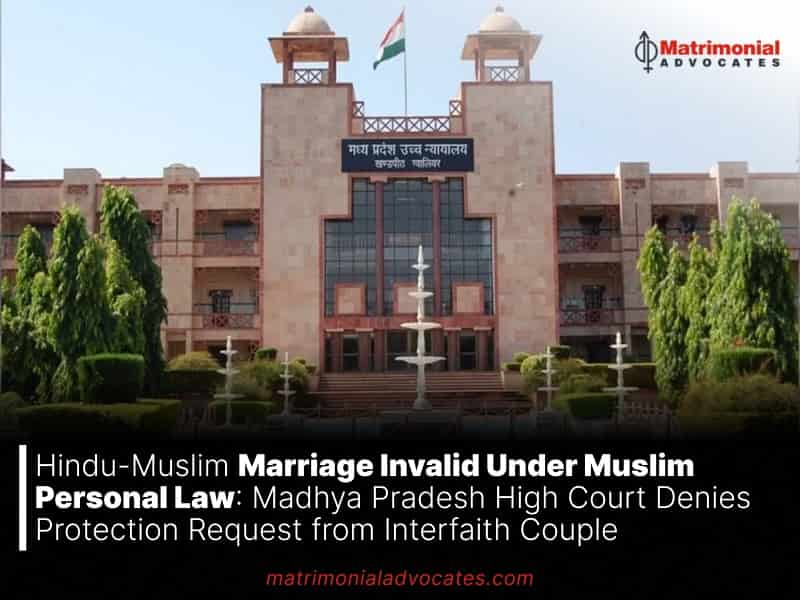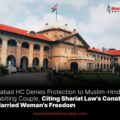
The Madhya Pradesh High Court recently denied protection to an interfaith couple, stating that a marriage between a Muslim man and a Hindu woman is invalid under Muslim Personal Law. The couple, who claimed to be in love, had approached the Marriage Officer under the Special Marriage Act. However, due to objections from their families, they were unable to appear before the Marriage Officer, which prevented their marriage from being registered. They sought protection and other reliefs to appear before the Marriage Officer on the designated date for their marriage registration under the Special Marriage Act. The Court denied their protection request, citing that the marriage would be irregular under Muslim Personal Law.
“As per Mahomedan law, the marriage of a Muslim boy with a girl who is an idolatress or a fire-worshiper, is not a valid marriage. Even if the marriage is registered under the Special Marriage Act, the marriage would be no more a valid marriage and it would be an irregular (fasid) marriage.” Justice Gurpal Singh Ahluwalia stated in the order passed on May 27.
The Court reviewed the validity of a marriage between a Muslim man and a Hindu woman, referring to the Supreme Court’s judgment in Mohammed Salim (D) Through LRs. & Ors. vs. Shamsudeen (D) Through LRs. & Ors., which addresses valid and invalid marriages under Muslim Personal Law.
“Under personal law, performance of certain rituals are necessary for solemnization of marriage. However, if marriage is performed under Special Marriage Act, then such marriage cannot be challenged on the ground of non-performance of such mandatory rituals. But marriage under Special Marriage Act would not legalise the marriage which otherwise is prohibited under personal law. Section 4 of Special Marriage Act provides that if the parties are not within prohibited relationship then only marriage can be performed.”
The Court observed that the couple was unwilling to enter into a live-in relationship, and the woman was not willing to convert to the man’s religion.
“It is not the case of petitioners that in case if marriage is not performed, then they are still interested to live in live-in relationship. It is also not the case of petitioners that petitioner No.1 would accept Muslim religion. Under these circumstances, this Court is of considered opinion that no case is made out warranting interference,” the Court said.





